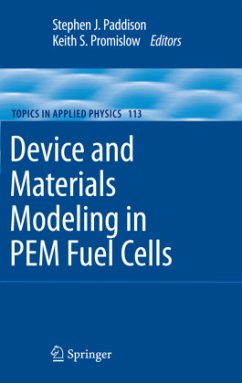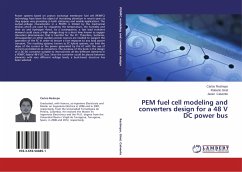
Power Electronics for PEM Type Fuel Cells
Design and Control of an Electric Energy-Conditioning System
Versandkostenfrei!
Versandfertig in 6-10 Tagen
52,99 €
inkl. MwSt.

PAYBACK Punkte
26 °P sammeln!
Isolated electric energy-generation systems are often needed to supply loads where the electrical network is not available. This could be caused due to geographic isolation, load mobility, demanded values of voltage or current that are not compatible with the local networks, etc. This makes the design and construction of stand-alone energy-generation systems a must. Nowadays, the design of such systems is being pushed towards cleaner technologies, among which, polymer electrolyte membrane (PEM) type fuel cell (FCs) are being considered as good alternative power sources against the traditional ...
Isolated electric energy-generation systems are often needed to supply loads where the electrical network is not available. This could be caused due to geographic isolation, load mobility, demanded values of voltage or current that are not compatible with the local networks, etc. This makes the design and construction of stand-alone energy-generation systems a must. Nowadays, the design of such systems is being pushed towards cleaner technologies, among which, polymer electrolyte membrane (PEM) type fuel cell (FCs) are being considered as good alternative power sources against the traditional ones. Nevertheless, to feed alternating current loads (ac), the direct current (dc) electric energy provided by FCs must be conditioned to match the load's requirements. This work presents the analysis, design, construction, and control for an electric energy-conditioning system for a PEM type FC to act as a stand-alone dc-ac inverter to feed linear or nonlinear loads with big variations. Special care has been taken regarding the control engineering aspects, such as, the modeling and identification of the power converters involved and their digital control.












